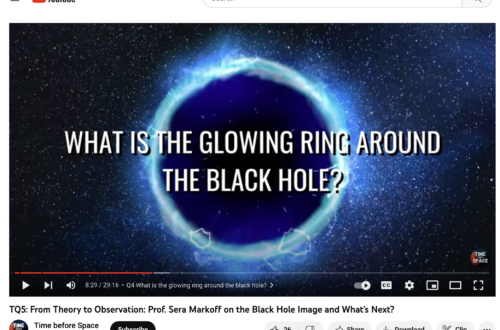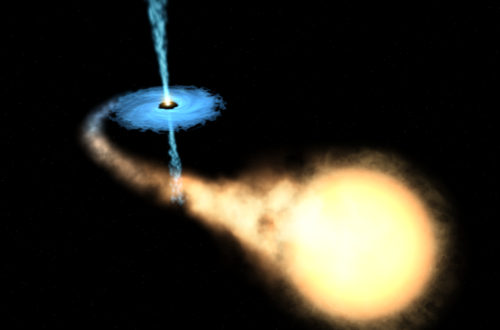Hello, my name is Scott, and I’m a master’s student working on modelling the emission of relativistic outflows of matter around supermassive black holes in the centre of galaxies. In this final year of my master’s, I’m working on research full-time and it has been an interesting and challenging time so far. Obviously, I’ve been busy with scientific work, but this also led me to think about the position of science in society and the role that scientists play in educating people.
Scientists are concerned with developing knowledge and making this accessible to everyone such that we can help humanity in different fields. Personally, I’m convinced that educating people is one of the most important tasks that scientists have. Hence, I’ve always tried to help people understand the things I work on. This is in the form of helping fellow students, tutoring high school students, working in a mobile planetarium and providing endless explanations to friends and family. All of these things definitely take time and effort, but seeing someone understand something they didn’t a few minutes before is very rewarding.
Recently, I volunteered for the Altair project set up by my MSc supervisor Sera Markoff together with the support of science communication expert Marieke Hohnen. In this project a group of volunteer scientists, mostly students but sometimes also postdocs, from the University of Amsterdam goes to a primary school close to the university. The purpose is to teach 9 to 12-year-old children about science and astronomy. It also aims to provide insights into what it’s like to be a scientist. The lessons are given in Dutch, and this year, the group of scientists even includes two non-native Dutch speakers, including Sera herself.
The lessons start when the children are in their 6th year where we let them conduct very simple experiments with light and also explain about the history of science. Later during the school year, there are lessons for groups 7 and 8 where the latter will also visit the university. As the children grow older, the lessons become a bit more challenging, and their excitement remains evident. Especially the older students, who know us, show great excitement when we enter the school.
The key message is that science is not about being extremely smart; it’s about being curious about the world around you. Scientists need to ask questions that no one has asked before and everyone can develop the skills and experience to be able to do this. Qualities such as critical thinking, creativity and good communication are key for this. These are important for everyone, not exclusively scientists, but particularly for young children who are being drilled to get high grades and perform in school. This is why the Altair project is so valuable. The project was awarded the NWO Domain Science Diversity Award [https://www.seramarkoff.com/2020/12/nwo-domain-science-diversity-initiative-award/] and Sera was interviewed to explain a bit more about the project. [https://www.youtube.com/watch?v=n-ctstifKx4]
During the lessons, I was very surprised to see how much 9 year old children already know about the moon, the sun, the stars and even black holes. It’s incredible to see how Google, YouTube and social media can have so much influence on young children nowadays. This almost unlimited source of information helps them understand the world but it also has negative aspects. For example, children often find it very difficult to separate reliable information from all the nonsense that is out there such as conspiracy theories. The amount of unreliable information is simply too large so we have to teach children how to assess the validity of the things they find on the internet. This is where the critical thinking becomes relevant.
Lastly, the Altair project includes only one primary school and it’s unrealistic to do this at every primary school in the Netherlands. Introducing young children to science and teaching them important skills must be done by the Dutch school system. However, there are some issues with this system and it could use some modernization. For a discussion on this, please refer to Part II of this blog.




